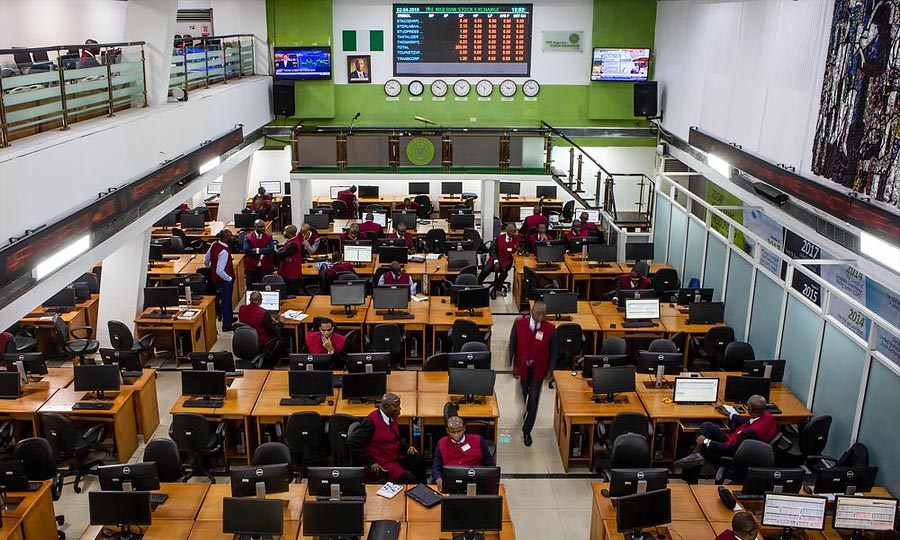E-fraud is a growing challenge, but digital banking remains an invaluable tool for financial inclusion and economic growth, argues TOPE FASORANTI
Temilayo, a petty trader, has vowed never to use electronic banking channels for fear of being defrauded. Amaka, a secondary school teacher, would rather endure the inconvenience of visiting a bank branch than embrace the ease of digital banking. Her fears have only deepened over the past year, with alarming reports such as the N44 billion fraud and the hacking of over 1,000 accounts in two of the FUGAZ banks. There was also the N21.2 billion loss suffered by a Fintech due to a so-called ‘technical glitch.’
Electronic fraud (e-fraud) in Nigeria targets both institutions and individuals using increasingly sophisticated methods. With POS (point-of-sale) transactions reaching N18 trillion and total electronic transactions hitting an all-time high of N1.08 quadrillion in 2024, fraud attempts are only expected to rise.
Does this mean electronic banking is a curse? It may feel that way at times, but nothing good comes without risks. Water is essential for life, yet people have drowned from drinking too much. Airplanes offer convenience, yet crashes still occur. In the same vein, we cannot disregard the immense benefits of electronic banking simply because of fraud. Instead, we must continuously review, refine, and enhance our platforms, processes, and products to improve security.
This article explores electronic fraud and how we can use digital banking solutions safely, efficiently, and appropriately.
With solutions such as instant merchant settlements and near real-time transfers, Nigeria’s payment system ranks among the most advanced globally. According to ACI’s Prime Time for Real-Time report, Nigeria leads Africa in real-time payments and is among the top 10 worldwide.
The Nigeria Inter-Bank Settlement System (NIBSS) reported that the value of electronic transactions surged to N1.08 quadrillion in 2024, an 80% increase from N600 trillion in 2023. Nigeria boasts a wide range of digital banking solutions, including mobile, internet, USSD, and chat banking, as well as payment gateways with multiple options such as card payments, wallets, transfers, e-mandates, QR codes, USSD, phone numbers, and pay-by-link services. POS terminals and agency banking further expand access.
These diverse electronic channels offer convenience and flexibility, allowing users to choose solutions that fit their lifestyles. However, they have also created multiple entry points for fraudsters.
Total fraud losses recorded by Nigerian banks in 2024 stood at N52.26 billion from over 70,000 transactions, according to a Nairametrics report citing data from the Nigeria Interbank Settlement System (NIBSS). This represents a staggering 4.5-fold increase from the N11.61 billion lost during the same period in 2023, with the majority of these fraud cases originating from electronic channels.
Fraud targeting financial institutions is often facilitated by insider collusion, while fraud against individuals primarily succeeds due to user negligence or lack of awareness. In most cases, fraudsters manipulate individuals into revealing their security credentials through social engineering tactics, including scam calls, deceptive messages, malware, and fake websites. Transaction authorisation in Nigeria typically relies on one or more authentication methods—such as PINs, passwords, passcodes, tokens, OTPs, fingerprints, facial recognition, or iris scans. However, nearly all successful fraud attempts occur when users unknowingly provide fraudsters with access to their accounts. According to the Check Point Software Technologies Global Threat Index, Nigeria remains a significant target for cybercriminals, ranking 11th globally for malware attacks in January 2025.
Institutional fraud, on the other hand, is primarily driven by deliberate actions of employees seeking to exploit internal vulnerabilities. In nearly every major institutional fraud case, at least one insider is involved, making internal fraud prevention more challenging. The traditional maker-checker protocol is no longer sufficient to safeguard financial institutions, necessitating more advanced fraud detection and prevention measures.
Electronic banking offers convenience and flexibility, but staying safe is essential. Here are some key practices to protect yourself:
One, choose a reputable financial institution that operates with integrity and is well-regulated.
Two, use banking channels that align with your lifestyle and security needs.
Three, enable two-factor authentication (2FA) for high-value transactions, unless you use biometric authentication.
Four, never disclose your security information—including PINs, passwords, and OTPs—to anyone, regardless of how much you trust them.
Five, memorise your security credentials rather than writing them down.
Six, be cautious of unsolicited requests for sensitive details. Your bank will never ask for your PIN or password. If in doubt, visit a branch or call the official customer service line.
Seven, report lost or stolen devices immediately and request a ‘no-debit’ status on your account while investigating the issue.
Eight, avoid using public Wi-Fi and charging ports when accessing financial applications.
Beyond individual responsibility, financial institutions, regulators, and other stakeholders in the digital finance ecosystem must continuously enhance security measures to combat e-fraud. Financial institutions should strengthen user authentication by leveraging biometric technology while integrating fraud detection tools that analyse transaction patterns, user behaviour, typing speed, IP addresses, and other risk indicators. They must also implement advanced AI-driven cybersecurity measures to improve fraud prevention, enhance internal controls beyond the traditional maker-checker system to mitigate insider fraud, and foster collaboration among themselves to ensure a rapid response to reported fraud cases and facilitate fund recovery.
Regulators, on the other hand, must strike a balance between enforcing stringent security measures and fostering industry growth. Strengthening collaboration with financial institutions and technology providers is essential to staying ahead of emerging fraud trends and ensuring the financial ecosystem remains both secure and innovative.
E-fraud is a growing challenge, but digital banking remains an invaluable tool for financial inclusion and economic growth. By adopting safer banking habits, strengthening institutional security frameworks, and fostering stronger collaboration among stakeholders, we can minimise risks while continuing to enjoy the benefits of a secure and efficient digital financial system.
Dr Fasoranti is an Economist, Banker, and Consultant on Digital Transformation





